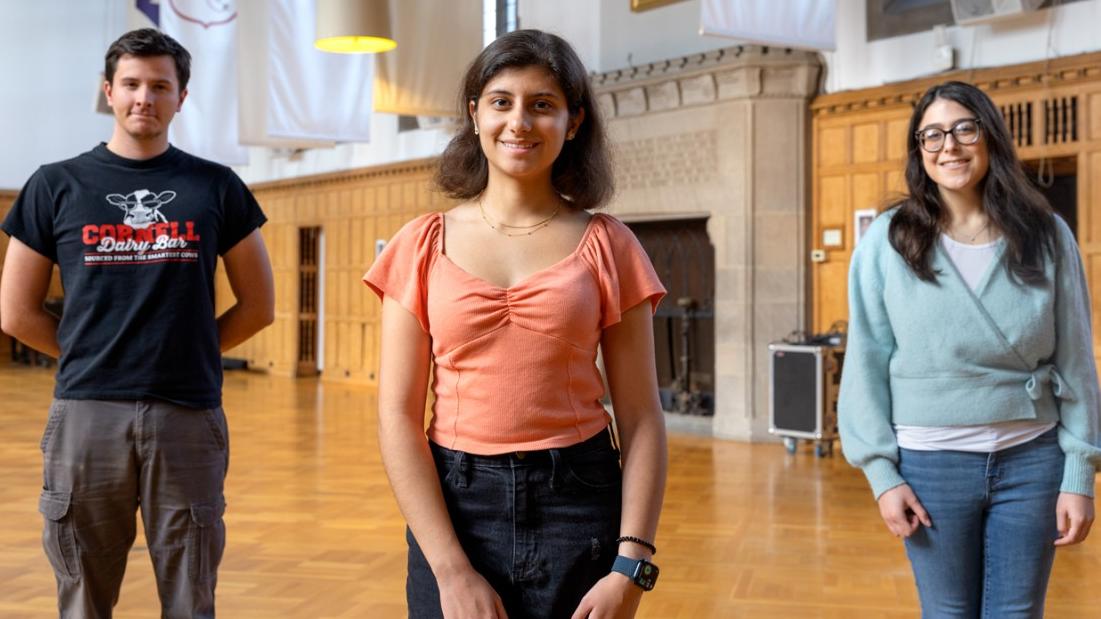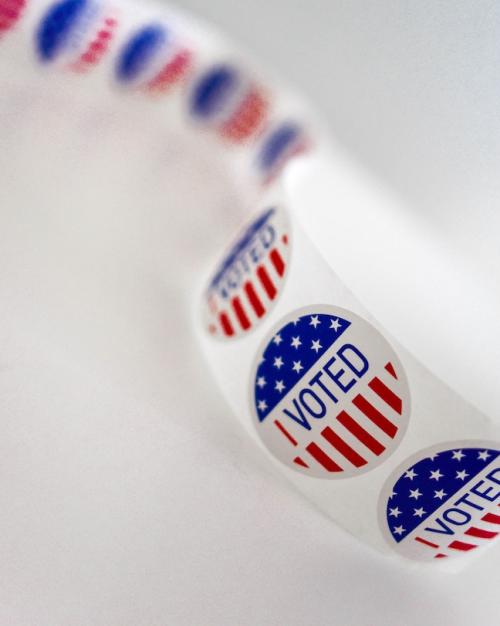On Nov. 8, for the first time, nearly all Cornell students who live on campus will be able to vote on campus in a general election, thanks in part to Cornell Votes, a two-year-old nonpartisan student group that helped advocate locally and statewide for on-campus polling locations in New York.
“The ultimate inspiring thing for me is that students are a wildly untapped population in terms of people getting their voices heard – a huge group who, in my experience, is not apathetic but frustrated with how complicated it typically is to vote,” said Patrick Mehler ’23, founding member and president of Cornell Votes, a senior in the ILR School and an alderperson on the City of Ithaca’s Common Council.
The legislation – mandating polling places on college campuses with 300 or more registered students and preventing the division of college campuses into multiple voting districts – was signed into law by Gov. Kathy Hochul in April as part of New York’s FY 2023 budget. It’s among a series of successes notched by Cornell Votes, which was founded in summer 2020 by five students and now numbers more than 100. Members work on everything from community engagement, such as voter registration and absentee ballot assistance, to building coalitions with other student organizations on campus and nationwide, and developing coordinated social media and email outreach.
They partnered with university administrators to make voting information available at dining facilities and on-campus COVID-19 testing sites. And their approach is working: In 2020, 19% more Cornellians voted in the federal election than in 2016, bringing Cornell’s voting rate above the national average.
“The youth have so much power, and we just don’t use it,” said Lauren Sherman ’24, the group’s incoming vice president of external operations and a government major in the College of Arts and Sciences. “We need to stand up for what we think is important.”
Cornell Votes aims to increase voter registration, turnout and civic engagement among Cornellians and the greater Cornell community. Turning out the midterm vote has been a major focus this semester, both for the early vote, Oct. 29 to Nov. 6, for those voting locally, and on Election Day.
On Nov. 8, Cornell students who live on campus can vote at Alice Cook House. There are two exceptions: residents of Barbara McClintock Hall and the Hasbrouck townhouses, off Pleasant Grove Road, live in the Town of Ithaca and vote at BOCES (Boards of Cooperative Education Services) at 555 Warren Road.
Cornell Votes is also involved in Student Assembly elections and counts among its successes a 33% increase in voter turnout in spring 2021 compared to the previous undergraduate student body elections. And they found a 31% increase in fall 2021 elections participation among first-year and transfer students, compared to fall 2020 elections.
“We are so proud of the voting rate increases, not only because it means Cornell Votes is reaching more students, but also because more Cornellians have a voice in their government,” said Dana Karami ’23, vice president of operations and a policy analysis and management major in the College of Human Ecology.
Added Sherman: “We need to get more people out to vote, especially given the voter suppression and threats of more over the past several years, and the response to it.”
The organization aims to include everyone in civic engagement and prioritizes nonpartisanship over party affiliation. “It does not matter where you vote, how you vote, who you vote for. It doesn’t mean any of those things. It means are you engaged and are you making your voice heard,” Mehler said.
Cornell Votes focuses on peer-to-peer outreach and connects with affinity groups and other student organizations on campus. The group even includes international Cornellians who cannot vote in U.S. elections.
They are some of the group’s best ambassadors, Mehler says.
“They can say, ‘Even if I can’t vote, it’s important that we all get involved.’ The chance that a random person or politician can get you to vote is really low. You’re more likely to listen to your friends, peers, people you look up to,” Mehler said. “And when those people are engaged in the process, it is getting more votes out.”
Cornell Votes will host its annual Civic Celebration Nov. 13, 5-7 p.m., at Willard Straight Hall. The group encourages community members and students to join; RSVP at cornellvotes@cornell.edu.
Lindsey Ross Johnson is communications specialist at Student and Campus Life. Susan Kelley is features editor at the Cornell Chronicle.
Read the story in the Cornell Chronicle.





